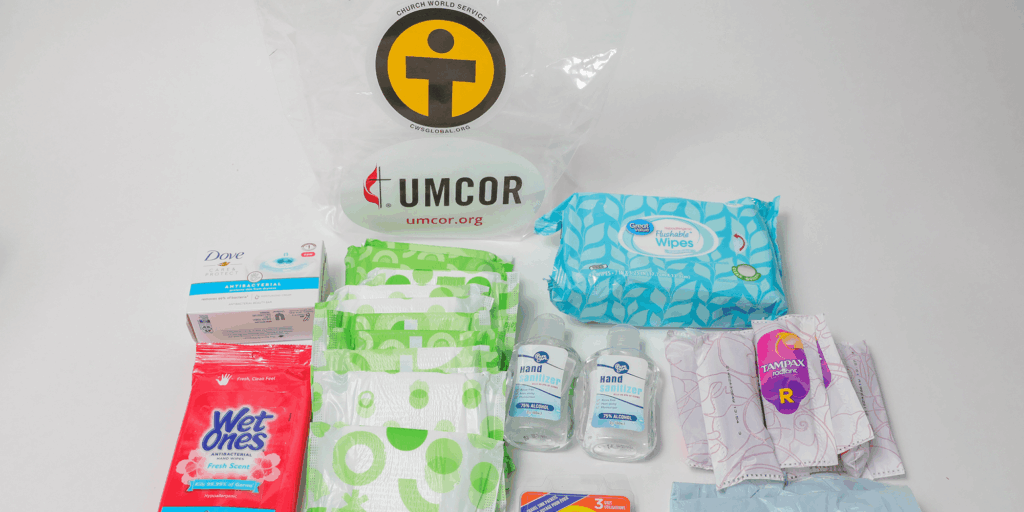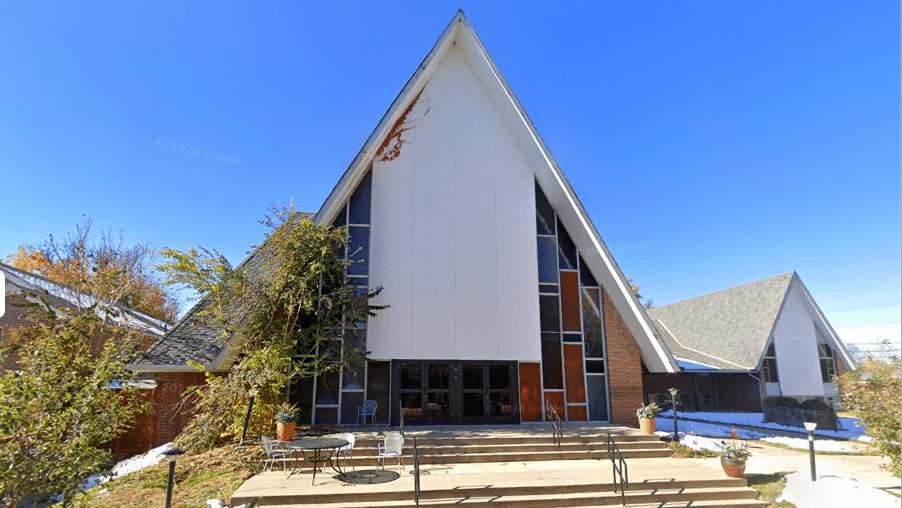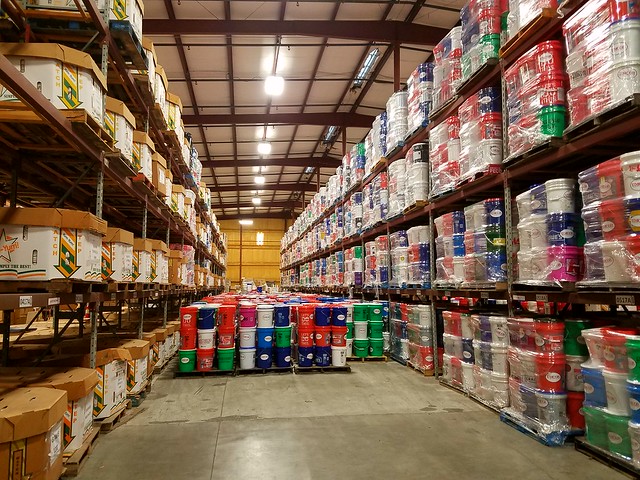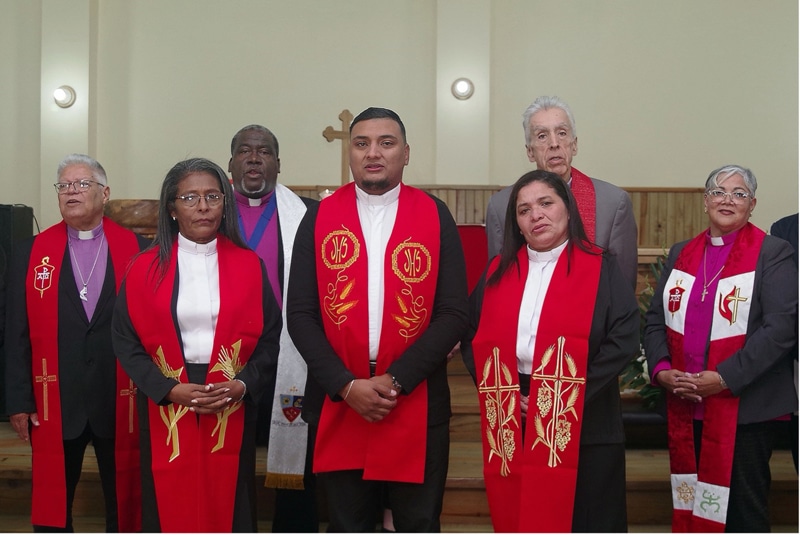Media Contact:
Susan Clark, Chief Communications Officer
communications@umcmission.org
800-862-4246
ATLANTA — The United Methodist Committee on Relief (UMCOR) and Church World Service (CWS) today launched a new joint menstrual hygiene kit initiative to provide essential health and dignity products to vulnerable communities across the U.S. The kits will be purchased and assembled by volunteers and supporters, and then distributed by UMCOR and CWS programs. The joint initiative comes as the U.S is facing a tampon shortage and record high inflation, making it difficult for many to afford basic necessities, including period products.
“Across our programs we are seeing the impact of high costs making it more difficult for the families to afford household necessities. From shelters along the border to local resettlement offices across the nation, immigrants and refugees often arrive with little more than the clothes on their backs. The same can be said for families who have been affected by hurricanes and other disasters. Partnering with CWS and UMCOR to assemble these period packs is a simple way communities can support the dignity and health of those we serve as they rebuild their lives,” said CWS President and CEO Rick Santos.
“When disaster strikes, the necessities of life become difficult, if not impossible, to acquire. UMCOR has a long history of collecting and supplying relief kits to help provide care for communities experiencing crisis,” said Roland Fernandes, general secretary of Global Ministries, which includes UMCOR. “We are thrilled to work now with our long time partner Church World Service to add menstrual hygiene kits to our relief supplies. Gifts of these and other relief kits will help those in crisis feel supported when they need it the most.”
Supplies for the kits will be purchased and assembled by congregations, community groups and individuals and then distributed through CWS and UMCOR programs across the country. Kits are easy to assemble and cost an estimated $14. Each kit includes one bar of soap, hand sanitizer, travel wet wipes, travel pack of flushable wipes, laundry detergent packs, 10 tampons, 10 sanitary napkins and trash bags.
For written instructions on how to assemble a menstrual hygiene kit, visit https://umcmission.org/resources/umcor-menstrual-hygiene-kit-instructions. For video instructions, visit https://umcmission.org/resources/umcor-menstrual-hygiene-kit-assembly-video.
##
About UMCOR and the General Board of Global Ministries of The United Methodist Church
Founded in 1940, the United Methodist Committee on Relief is the global humanitarian relief agency of The United Methodist Church. A part of Global Ministries, UMCOR works in more than 80 countries worldwide, including the United States and its territories. The agency’s mission, grounded in the teachings of Jesus, is to alleviate human suffering with open hearts and minds to all people. Working in the areas of disaster response and recovery, sustainable development and migration, UMCOR responds to natural or civil disasters that are interruptions of such magnitude that they overwhelm a community’s ability to recover on its own. Learn more about UMCOR and follow us on social media.




